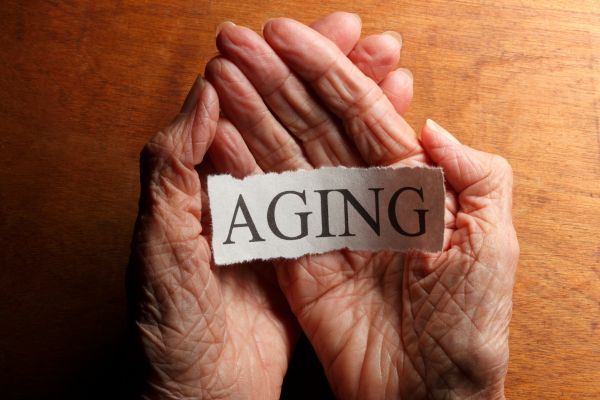Getting older is a beautiful thing — it means more memories, more wisdom, and honestly, more reasons to take care of yourself. But let’s be real, as the years go by, your body doesn’t run on the same fuel it used to. What you eat starts to matter a whole lot more. That’s where smart eating comes in. These nutrition tips for aging adults aren’t just about living longer — they’re about living better, with more energy, fewer health hiccups, and a stronger body to enjoy all those moments that really count.
Understanding Why Nutrition Changes with Age
Here’s the thing: as you age, your metabolism slows down, your muscle mass naturally decreases, and your digestive system might not work as efficiently as before. You might find yourself less hungry or craving smaller portions. But your body still needs a steady flow of nutrients to stay strong, maintain bone health, and keep your immune system in check.
That means your nutrition game has to level up. You need fewer calories but more vitamins, minerals, and high-quality foods. And that’s where mindful eating and a few key adjustments can make a huge difference.
Focus on Protein for Strength and Energy
If there’s one thing to pay attention to, it’s protein. Many older adults don’t get enough of it, and that’s a problem because protein helps preserve muscle mass — which naturally declines with age.
Good sources? Think lean chicken, fish, eggs, beans, lentils, tofu, or even Greek yogurt. Try spreading your protein intake throughout the day instead of loading up at dinner. For example, start your morning with scrambled eggs or oatmeal with nuts, and you’ll already be ahead.
You don’t need to overthink it — just make sure protein is a guest at every meal. It’ll help you stay active and strong, which, let’s be honest, is what everyone wants as they age.
Stay Hydrated — Even When You Don’t Feel Thirsty
Here’s a sneaky fact: as you age, your sense of thirst dulls. You might not feel thirsty even when your body’s practically begging for water. Dehydration can cause fatigue, confusion, and even dizziness — none of which you want to deal with.
The solution? Keep a glass or bottle of water nearby all day. Herbal teas, soups, and water-rich fruits like oranges or melons also help. Try to sip often, even if you’re not feeling parched. It’s one of the simplest nutrition tips for aging adults that makes a huge difference in energy and overall health.
Eat Colorful Foods for Vitamins and Antioxidants
If your plate looks beige, that’s a sign you might be missing out on vital nutrients. Add some color — and no, not from candy or processed foods. Bright fruits and vegetables like spinach, carrots, blueberries, and bell peppers are packed with antioxidants that fight inflammation and protect your cells from damage.
Antioxidants are like your body’s repair crew. They help slow down the signs of aging and boost immunity. So when in doubt, go for a rainbow plate — it’s simple, beautiful, and insanely good for you.
Don’t Fear Healthy Fats
The old advice about avoiding fat? Outdated. Your body, especially your brain and heart, needs healthy fats to function properly. Omega-3 fatty acids (found in salmon, walnuts, and flaxseeds) are especially beneficial for reducing inflammation and supporting brain health.
A drizzle of olive oil on your salad, some avocado on toast — these small choices go a long way. The key is choosing the right fats, not skipping them altogether.
Mind Your Calcium and Vitamin D Intake
Bone health becomes a bigger deal with age. Calcium and vitamin D are the dream team when it comes to keeping your bones strong and reducing the risk of osteoporosis.
You can get calcium from dairy products, fortified plant milks, almonds, or leafy greens. Vitamin D is a bit trickier since it mainly comes from sunlight. A few minutes outdoors daily can help, but many aging adults may still need a supplement after consulting their doctor.
Fiber Is Your Digestive Friend
Let’s be honest — digestion can slow down a bit with age. Fiber keeps things moving smoothly and also helps manage cholesterol and blood sugar levels.
Whole grains, fruits, vegetables, and legumes are your best friends here. Just remember to increase your fiber gradually and drink plenty of water along with it. Otherwise, you might feel more bloated than balanced.
Watch Sodium and Sugar
Your taste buds might get a little less sharp with age, which means you might be tempted to add more salt or sugar to your meals. But here’s the catch: too much sodium can raise blood pressure, and excess sugar can mess with your energy levels and heart health.
Try seasoning with herbs and spices instead of salt. And when you crave something sweet, go for fruit instead of cookies. The thing is, your taste buds will adjust — and soon you’ll actually prefer natural flavors over heavy additives.
Eat Smaller, More Frequent Meals
Many aging adults find that smaller, balanced meals spaced throughout the day feel better than three large ones. It helps regulate blood sugar, keeps your energy up, and avoids that sluggish “food coma” feeling.
You could go for a breakfast smoothie, a midday soup, a light salad for lunch, and something hearty but balanced for dinner. Listening to your body’s cues — instead of sticking to strict schedules — often leads to better eating habits overall.
Don’t Skip Social Meals
Here’s something people don’t talk about enough: loneliness can affect appetite. Sharing meals with family or friends can make eating more enjoyable and ensure you’re getting enough nutrients.
If you live alone, join a community meal program, invite a neighbor over, or even video chat during meals. Food is fuel, but it’s also connection — and that emotional nourishment matters, too.
Supplements: Use Them Wisely
While food should be your first source of nutrition, some supplements can fill the gaps — especially for vitamin D, B12, or calcium. But before you grab a handful of pills, talk to your doctor. Overdoing supplements can backfire.
Think of them as a backup plan, not the main meal ticket. A balanced diet is still the foundation for lasting health.
Bringing It All Together
Aging doesn’t mean slowing down — it means being smart about how you fuel your body. These nutrition tips for aging adults are all about finding balance, keeping your meals colorful, and listening to what your body needs.
Eat mindfully, stay hydrated, and embrace those moments around the table — because good food isn’t just about nutrients. It’s about living fully, with strength, joy, and a bit of flavor in every bite.
You deserve to feel your best at every age. And with the right nutrition, you absolutely can.





